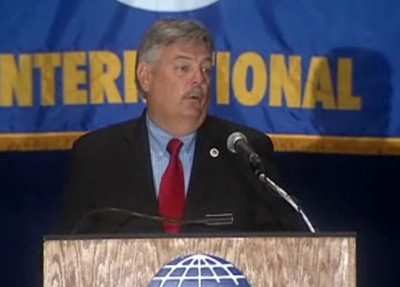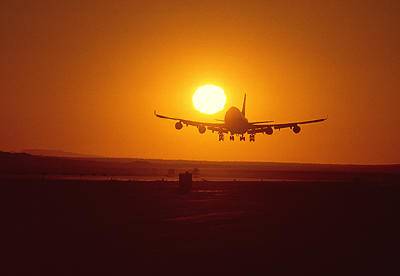Expects NTSB To 'Summarize And Identify Potential Actions'
 ALPA participated in the NTSB Public Safety Forum on
Professionalism in Aviation this week to underscore the exemplary
professionalism of airline pilots, who safely flew more than 10
million flights in the United States and Canada in 2009.
ALPA participated in the NTSB Public Safety Forum on
Professionalism in Aviation this week to underscore the exemplary
professionalism of airline pilots, who safely flew more than 10
million flights in the United States and Canada in 2009.
“ALPA pilots have demonstrated a commitment to
professional excellence since the Association was founded in
1931,” said Capt. John Prater, ALPA’s president.
“We commend the NTSB for challenging our industry to do even
more, because professionalism is a shared responsibility among the
regulators, the airlines, and airline workers. If a link is lost
anywhere in this chain, our industry fails its passengers and all
who depend on a safe transportation system.”
Three ALPA pilots were asked by the NTSB to make formal
presentations to assist in identifying the attributes of
professional pilots as well as innovative ways to promote the
highest possible professionalism standards within the industry.
Representing ALPA were Capt. John Sluys (ALA), executive
vice-president and chair of ALPA’s Professional Development
Group, Capt. Tim Flaherty (DAL), chair of the ALPA Air Traffic
Services Group, and Capt. John Rosenberg (DAL), chair of
ALPA’s Professional Standards Committee.

Capt. John Prater, ALPA
President
Numerous government and industry presenters cited ALPA’s
long-standing dedication to professionalism as expressed in
ALPA’s Code of Ethics, which was adopted by the
Association’s Executive Board in 1956 and still serves as the
“gold standard” of professionalism across the industry
today. Although professionalism issues are extremely rare, ALPA
maintains a robust professional standards program that proactively
employs time-tested techniques including peer-to-peer counseling to
swiftly address any personal or performance-related issue that
holds the potential to compromise flight safety.
During the forum, ALPA presenters challenged the airlines to
promote greater opportunities for strengthening pilot
professionalism including:
- Adopting and supporting an airline code of ethics to create a
professional corporate culture that recognizes and values the
contributions of pilots to the company’s success;
- Adopting a professional standards program at all Part 121
airlines;
- Recognizing and addressing the negative impact on pilot
professionalism when the company or the regulator acts in an
unprofessional manner or attempts to undermine captain’s
authority;
- Using sophisticated pilot selection tools and methods during
the pilot hiring process;
- Overhauling education, training, and certification requirements
for future airline pilots;
- Including the subjects of professionalism and ethics in airline
training;
- Promoting pilot mentoring programs; and
- Encouraging the continued evolution of effective crew resource
management training while respecting captain’s
authority.
ALPA also urged the FAA to help pilot and controllers go
“back to basics” with respect to pilot-controller
communications. A better understanding of each other’s roles
and responsibilities is needed and could be facilitated in part by
the restoration of familiarization flights for air traffic
controllers.
“While ALPA pilots operate thousands of flights safely
every day, the union takes extremely seriously its shared
responsibility to ensure that our industry does not rest in
pursuing even higher standards of professionalism,” continued
Prater. “The NTSB forum this week has served to remind
everyone that a true industry-wide partnership is needed and that
all the stakeholders within government and industry must commit and
engage.”

As a result of this forum, ALPA expects that the NTSB will
summarize and identify potential actions that would lead to
improvement. ALPA looks forward to working with the industry to
implement the enhancements that will make our already safe industry
even safer.
 Airbus Racer Helicopter Demonstrator First Flight Part of Clean Sky 2 Initiative
Airbus Racer Helicopter Demonstrator First Flight Part of Clean Sky 2 Initiative Diamond's Electric DA40 Finds Fans at Dübendorf
Diamond's Electric DA40 Finds Fans at Dübendorf ANN's Daily Aero-Term (04.23.24): Line Up And Wait (LUAW)
ANN's Daily Aero-Term (04.23.24): Line Up And Wait (LUAW) NTSB Final Report: Extra Flugzeugbau GMBH EA300/L
NTSB Final Report: Extra Flugzeugbau GMBH EA300/L Classic Aero-TV: 'Never Give Up' - Advice From Two of FedEx's Female Captains
Classic Aero-TV: 'Never Give Up' - Advice From Two of FedEx's Female Captains





